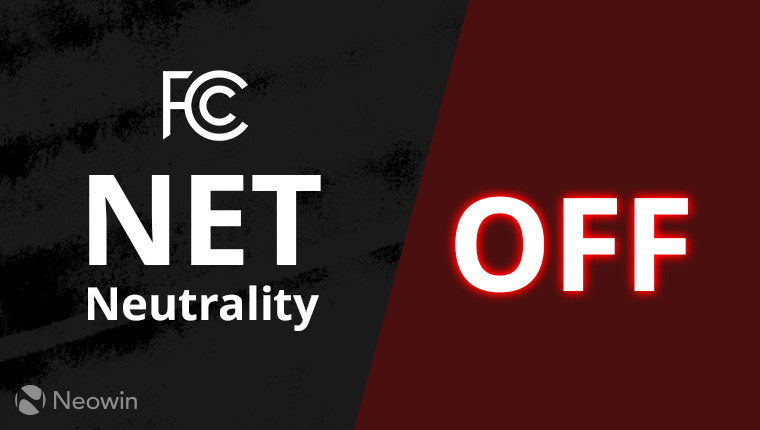
The FCC caused quite a stir when it repealed net neutrality last month. As with any controversial decision, lawsuits have been threatened, legislation has been promised, and even a Senate resolution has been offered to overturn the repeal and re-institute net neutrality. The latter has been getting a lot of play in the media, especially with the Senate now reportedly being only one vote away from being able to pass their resolution. What is being under-reported is that this is only a small first step in a much longer - and probably ill-fated - battle, at least on this front.
This resolution is made possible by an act that was passed under the Clinton administration called the Congressional Review Act. The CRA allows any house of Congress to object to and overturn any rule passed by a federal agency, in this case, the FCC. If the Senate resolution, spearheaded by Sen. Ed Markey, gets 30 co-sponsors, which it has, it is able to "fast track" the resolution to the Senate floor without the possibility of a filibuster. With the Senate now having 50 votes - all 49 Democrats and GOP Sen. Susan Collins - net neutrality supporters need to convince one more Republican to join once a vote is called for to negate the sure no vote from VP Mike Pence if there was a 50-50 tie.

Now, that sounds great, and its what is currently being thrown about as great news for net neutrality. But there is much more behind the scenes that needs to happen, or this will all be in vain. One thing that is being missed is that the House also needs to pass its version of the resolution, which is currently sponsored by U.S. Rep. Mike Doyle (D-PA). Keep in mind that the 435-member House needs to secure 218 votes to pass their resolution. Doyle's press office just today released a list of only 82 House members who have agreed to co-sponsor the House version of the resolution. That means 136 other representatives need to be onboard to vote in favor of the resolution. Considering that the GOP controls the House 238-193 (with four vacancies), supporters need to get at least 35 members of the GOP to go against the Republican-tilted FCC. That's a tall order right now.
But, wait, there's more. There is no fast-track procedure in the House. Even if a House member calls for a vote, unless House leadership backs it, they are under no obligation to even vote on the issue. According to the FAQ on the CRA: "Unless the House majority party is willing to schedule the measure for consideration, it in all likelihood will not be considered." So, unless House Speaker Paul Ryan is one of the yes votes for the resolution, you can pretty much kiss a joint resolution goodbye.

But let's just say, for argument's sake, that Ryan is onboard and that Doyle and his supporters continue to finagle for a final 218 votes. A clock will begin to tick once the final FCC order is published in the Federal Register. According to the CRA, Congress has only 60 days to pass the joint resolution. And if you have been following our coverage, you know that is the exact time frame of when the FCC repeal will go into effect after it hits the Register. As of today, the order has yet to be published, so net neutrality proponents have a short grace period before the clock starts ticking to get their backers.
But let's say they get their 218 votes in time. Both the House and Senate pass the Joint Resolution disapproving of the FCC repeal. Awesome! Great News! We win, right? Nope, as with any bill or joint resolution, it must go to the President for his signature. Given that President Trump appointed Ajit Pai as chairman of the FCC, and the repeal of net neutrality was Pai's idea, in all likelihood we can guarantee that a veto will happen.

And once that happens, the resolution will then need 67 Senators and 290 votes in the House - or a 2/3 vote in each house - to override the presidential veto.
The only good news from this is that if that all of these hurdles can be jumped - and that is admittedly a big if - net neutrality would be back, and the FCC would be precluded from issuing another rule in "substantially the same form".
So while the Senate nearing the 51-vote mark is nice, it is nowhere close to a final victory to bring back net neutrality.
The fight clearly wouldn't be over, though, just one avenue closed off. Several lawmakers have promised to author net neutrality legislation, with one already introduced, but to a somewhat tepid response.

Then there is the legal arena. Also today, New York Attorney General Eric Schneiderman, joined by 22 other state attorneys general, filed suit in the Court of Appeals for the District of Columbia to block the FCC net neutrality repeal, saying "the FCC cannot make 'arbitrary and capricious' changes to existing policies, such as net neutrality," which is a violation of the Administrative Procedure Act.
There is still a lot going on with regards to net neutrality, so stay informed and continue to make your voice heard by your legislators if you favor net neutrality. It's not over, but time is getting shorter.

















3 Comments - Add comment